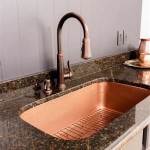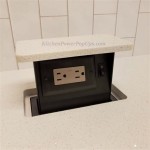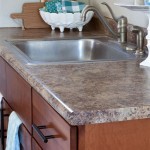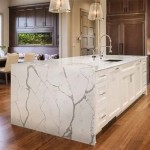Wooden Utensil Holders for Countertops: A Functional and Aesthetic Kitchen Essential
Wooden utensil holders designed for countertop placement are increasingly recognized as more than just storage solutions; they represent a confluence of functionality, aesthetics, and sustainability in the modern kitchen. These holders provide a designated location for frequently used cooking tools, keeping them readily accessible while simultaneously contributing to the overall organized appearance of the kitchen space. This article delves into the attributes, benefits, and considerations associated with selecting and maintaining wooden utensil holders for countertops.
The Functional Advantages of Wooden Utensil Holders
The primary advantage of a wooden utensil holder is its functional role in streamlining the cooking process. By consolidating spatulas, spoons, whisks, and other essential tools in a single, easily accessible location, cooks can significantly reduce the time spent searching for items. This efficiency is particularly valuable during complex recipes or when preparing multiple dishes simultaneously.
Furthermore, a countertop utensil holder prevents the need to rummage through cluttered drawers or cabinets. This not only saves time but also minimizes the potential for damage to both the utensils and the storage space. Reaching for tools without obstruction reduces wear and tear on utensils, extending their lifespan and preserving their functional integrity.
The design of a wooden utensil holder also promotes hygiene. By keeping utensils upright and separated from other kitchen items, it helps to prevent cross-contamination and maintain a cleaner cooking environment. This is especially crucial when dealing with raw ingredients or preparing meals for individuals with dietary restrictions or allergies. The open design facilitates air circulation, allowing utensils to dry thoroughly after washing, further inhibiting bacterial growth.
The footprint of a countertop utensil holder is another functional aspect to consider. Unlike wall-mounted racks or drawer organizers, a holder occupies a relatively small area on the countertop. This makes it an ideal solution for kitchens with limited space, as it provides readily available storage without significantly encroaching on valuable workspace. The compact size allows for placement near the stove or preparation area, ensuring utensils are always within arm's reach.
Aesthetic Considerations: Integrating Wood into Kitchen Design
Beyond their practical benefits, wooden utensil holders contribute significantly to the aesthetic appeal of a kitchen. Wood, as a natural material, offers a warm and inviting texture that complements a wide range of kitchen styles, from traditional to contemporary. The inherent variations in wood grain and color ensure that each utensil holder is unique, adding a touch of character and personality to the countertop.
The visual appeal of a wooden utensil holder can be further enhanced by selecting a design that aligns with the overall kitchen décor. Holders are available in various shapes, sizes, and finishes, allowing homeowners to choose an option that seamlessly integrates with existing color schemes and design elements. For example, a light-colored maple holder might complement a minimalist, Scandinavian-inspired kitchen, while a darker walnut holder could add a touch of sophistication to a more traditional setting.
The use of wood also brings a sense of organic beauty to the kitchen environment. In contrast to plastic or metal alternatives, wood conveys a feeling of warmth and naturalness that can help to create a more inviting and comfortable atmosphere. This is particularly important in the kitchen, which is often considered the heart of the home and a gathering place for family and friends.
Moreover, wooden utensil holders can serve as a visual focal point on the countertop. By strategically placing the holder near other decorative items, such as cookbooks or potted herbs, it can help to create a cohesive and visually appealing arrangement. The natural texture of the wood can also provide a pleasing contrast to smoother surfaces, such as granite or stainless steel.
Material Properties and Maintenance of Wooden Utensil Holders
The choice of wood species plays a significant role in the durability and longevity of a utensil holder. Hardwoods, such as maple, cherry, and walnut, are generally more resistant to scratches, dents, and moisture damage than softwoods, such as pine. These hardwoods also tend to have a tighter grain structure, making them less porous and easier to clean.
Proper maintenance is essential for preserving the beauty and functionality of a wooden utensil holder. Regular cleaning with a damp cloth and mild soap is typically sufficient to remove food residue and stains. Harsh chemicals or abrasive cleaners should be avoided, as they can damage the wood's finish and cause discoloration.
Periodically treating the wood with a food-safe mineral oil or beeswax polish can help to protect it from moisture and prevent it from drying out or cracking. This is particularly important for utensil holders that are frequently exposed to water or humidity. The application of oil or wax helps to create a protective barrier that repels moisture and enhances the wood's natural luster.
It is also important to avoid placing excessively wet utensils directly into the holder, as this can lead to water damage and promote the growth of mold or mildew. Allowing utensils to air dry partially before storing them in the holder can help to prevent these issues. Ensuring adequate ventilation around the holder can also help to reduce moisture buildup.
When selecting a wooden utensil holder, it is important to consider the origin and sustainability of the wood used in its construction. Choosing holders made from sustainably harvested wood or reclaimed materials is a responsible way to minimize the environmental impact of the purchase. Look for certifications from organizations such as the Forest Stewardship Council (FSC) to ensure that the wood has been sourced from responsibly managed forests.
The size and shape of the utensil holder should also be carefully considered to ensure that it can accommodate the user's specific collection of utensils. A holder that is too small may not be able to hold all of the desired items, while a holder that is too large may take up unnecessary space on the countertop. The shape of the holder should also be compatible with the types of utensils being stored. For example, a holder with a wider base may be more stable for storing heavier utensils, such as ladles or potato mashers.
The finish applied to the wooden utensil holder can also affect its durability and appearance. A clear coat of varnish or lacquer can provide a protective barrier against scratches and moisture damage, while also enhancing the wood's natural grain and color. A painted finish can add a pop of color to the kitchen décor, but it may be more susceptible to chipping or scratching over time. The selection of a finish should be based on personal preferences and the expected level of use and wear.
In addition to these practical considerations, the overall design and style of the wooden utensil holder should also be taken into account. Choosing a holder that complements the existing kitchen décor can help to create a cohesive and visually appealing space. There are many different styles of wooden utensil holders available, ranging from simple and minimalist designs to more elaborate and ornate options. The selection of a style should be based on personal taste and the overall aesthetic of the kitchen.
Ultimately, a wooden utensil holder is a versatile and functional accessory that can enhance both the practicality and the aesthetic appeal of any kitchen. By carefully considering the factors outlined above, consumers can select a holder that meets their specific needs and preferences, while also contributing to a more organized and stylish cooking environment. Furthermore, choosing a sustainably sourced wood utensil holder aligns with environmentally conscious practices, reflecting a commitment to responsible consumption and resource management.

Utensil Holder In Rustic Wood For Farmhouse Kitchen Decor Countertop Organizer And Cooking Tools Storage Double Compartment Etsy

Olive Wood Large Utensil Holder 6 X 4 Wooden Kitchenware Organizer Spoons For Countertop Wal Com

Olive Wood Large Utensil Holder 6 X 4 Wooden Kitchenware Organizer Spoons For Countertop Wal Com

Decorative Rustic Gray Wood Kitchen Utensil Crock Countertop Cooking Tool Holder

Rustic Wooden Kitchen Utensil Rack 3 Compartment Organizer For Countertop Silverware And Cooking Tool Non Powered Rectangular

Farmhouse Utensils Wooden Utensil Holder Rustic Countertop Organizer 9 5x7x4 Kitchen

Kitchen Utensil Holder Organizer And Caddy For The Countertop Etsy

Olive Wood Large Utensil Holder 6 X 4 Wooden Kitchenware Organizer Spoons For Countertop Wal Com

Adrinfly Extra Large Kitchen Utensils Holder With 4 Compartments White Wooden Utensil Organizer For Countertop Farmhouse Storage Psa0429b025

Wooden Utensil Holder For Countertop 7 X 5 25 6 Inches White Michaels
See Also








